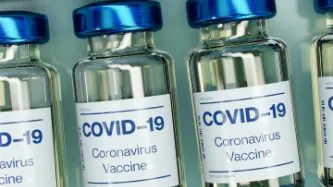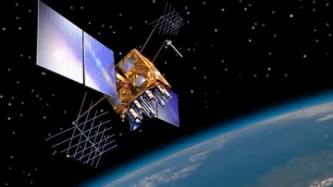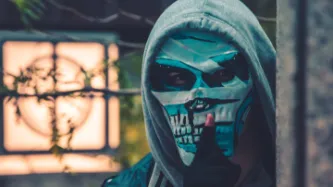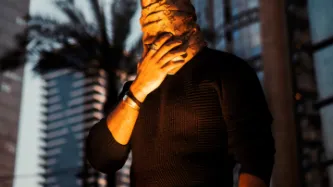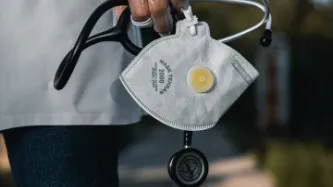Search
Content type: Long Read
As we see Covid-19 vaccination programmes beginning around the world, for the first time since the start of the pandemic there seems to be a light at the end of the tunnel as the fruition of truly unrivalled global scientific efforts has given us hope of saving lives, reopening our societies, and going back to “normal”.
This great moment of hope must not be seen opportunistically as yet another data grab. The deployment of vaccines, and in particular any “immunity passport” or certificate…
Content type: Explainer
At first glance, infrared temperature checks would appear to provide much-needed reassurance for people concerned about their own health, as well as that of loved ones and colleagues, as the lockdown is lifted. More people are beginning to travel, and are re-entering offices, airports, and other contained public and private spaces. Thermal imaging cameras are presented as an effective way to detect if someone has one of the symptoms of the coronavirus - a temperature.
However, there is little…
Content type: Long Read
Covid Apps are on their way to a phone near you. Is it another case of tech-solutionism or a key tool in our healthcare response to the pandemic? It’s fair to say that nobody quite knows just yet.
We’ve been tracking these apps since the early days. We’ve been monitoring Apple and Google closely, have been involved in the UK’s app process, our partners in Chile and Peru have been tracking their governments’ apps, and more.
Of course privacy concerns arise. But only a simplistic analysis would…
Content type: Explainer
In a scramble to track, and thereby stem the flow of, new cases of COVID-19, governments around the world are rushing to track the locations of their populace.
In this third installment of our Covid-19 tracking technology primers, we look at Satellite Navigation technology. In Part 1 of our mini-series on we discussed apps that use Bluetooth for proximity tracking. Telecommunications operators ('telcos'), which we discussed in Part 2, are also handing over customer data, showing the cell towers…
Content type: Long Read
On 12 April 2020, citing confidential documents, the Guardian reported Palantir would be involved in a Covid-19 data project which "includes large volumes of data pertaining to individuals, including protected health information, Covid-19 test results, the contents of people’s calls to the NHS health advice line 111 and clinical information about those in intensive care".
It cited a Whitehall source "alarmed at the “unprecedented” amounts of confidential health information being swept up in the…
Content type: Long Read
UPDATE 21/07/2020: On Monday July 20th, the Israeli parliament approved a new bill allowing the Ministry of Health to rely again on the Intelligence Services to track people who may have been exposed to Covid 19 when the number of new cases reaches 200 and above per day. The authorisation is then granted for three weeks and can be extended if the numbers have not decreased. The new law will be effective until January 2021. As of July 21st and for at least the next three weeks, the Intelligence…
Content type: Press release
Photo by Ashkan Forouzani on Unsplash
Today Privacy International, Big Brother Watch, medConfidential, Foxglove, and Open Rights Group have sent Palantir 10 questions about their work with the UK’s National Health Service (NHS) during the Covid-19 public health crisis and have requested for the contract to be disclosed.
On its website Palantir says that the company has a “culture of open and critical discussion around the implications of [their] technology” but the company have so far…
Content type: Examples
North Macedonia is the first country in the Western Balkans to launch a contact-tracing app. The government has stressed that the Bluetooth-based app, StopKorona!, complies with all legal privacy requirements. The app follows a decentralised design, so that users maintain full control over their data, which is deleted after 14 days; if they test positive for the virus they can choose to send their location history to the Ministry of Health so that their contacts can be alerted. The app was…
Content type: Examples
India's COVID-19 tracker app, Aarogya Setu, was downloaded 50 million times in the first 13 days it was available. Developed by the National Informatics Centre a subsidiary of the Ministry of Electronics and IT, the app is available on both Android and iOS smartphones, and uses GPS and Bluetooth to provide information on whether the phone has been near an infected person. Users provide a mobile number, health status, and other credentials, and must keep both location services and Bluetooth…
Content type: Examples
The Australian government's planned contact tracing app will reportedly be based on Singapore's TraceTogether, which relies on Bluetooth connections to detect other phones in range and log the results, so that if a phone user tests positive for COVID-19 and consents their close contacts can be alerted by uploading the logs to a centralised server. A second app, ConTrace, is in development for the Public Transport Information and Priority System; the prototype requires no personal information…
Content type: Examples
Palantir and the British AI start-up Faculty are data-mining large volumes of confidential UK patient information to consolidate government databases and build predictive computer models under contract to NHSx, the digital transformation arm of the UK's National Health Service. NHSx said the goal is to give ministers and officials real-time information to show where demand is rising and equipment needs to be deployed, and that the companies involved do not control the data and are not allowed…
Content type: Examples
The Kazakhstani ministry of health requires the 8,000 or so Kazakhstani citizens currently under quarantine to use the SmartAstana tracking app, which enables officials to ensure that they remain in isolation. By contrast, for the city of Almaty the ministry of the interior relies on video surveillance technology called Sergek, produced by the local telecommunications firm Korkem Telecom to find people who break quarantine . So far, these two cases are the only examples of the government…
Content type: Examples
Anyone in Egypt who suspects they or others have COVID-19 is required to immediately report it to the authorities in order to stop the spread of the virus and enable treatment. On April 1 Ahmed Refaat, a member of the parliamentary Telecommunications Committee, submitted a proposal for creating an app that would track these cases and allow them to receive a test result without having to return to the testing centre. The proposed app would also provide daily updates on the virus's spread and the…
Content type: News & Analysis
This week International Health Day was marked amidst a global pandemic which has impacted every region in the world. And it gives us a chance to reflect on how tech companies, governments, and international agencies are responding to Covid-19 through the use of data and tech.
All of them have been announcing measures to help contain or respond to the spread of the virus; but too many allow for unprecedented levels of data exploitation with unclear benefits, and raising so many red flags…
Content type: Examples
Together with Norwegian company Simula the Norwegian Institute of Public Health is developping a voluntary app to track users geolocation and slow the spread of Covid-19. Running in the background, the app will collect GPS and Bluetooth location data and store them on a server for 30 days. If a user is diagnosed with the virus, its location data can be user to trace all the phones that have been in close contact with the person. Authorities will use this data to send an SMS only to those phones…
Content type: Examples
The new Singaporean app, TraceTogether, developed by the Government Technology Agency in collaboration with the Ministry of Health was launched on March 20 after eight weeks of development. The app, which can be downloaded by anyone with a Singapore mobile number and a Bluetooth-enabled smartphone, asks users to turn on Bluetooth and location services, and enable push notifications. The app works by exchanging short-distance Bluetooth signals between phones to detect other users within two…
Content type: Examples
At the MIT Media lab, Ramesh Raskar is leading a team that includes software engineers at companies such as Facebook and Uber to develop the free and open source app Private Kit: Safe Paths. The app is intended to share encrypted information between phones in the network without going through a central authority so that individuals can see if they've come in contact with someone carrying the coronavirus. Anyone who tests positive can choose to share location data with health officials, who can…
Content type: Examples
Because tracking and limiting the movement of those suspected to be carrying COVID-19 carriers has been a factor in flattening the exponential curve of cases in places like Singapore, Taiwan, and South Korea, Professor Marylouise McLaws, a technical advisor to the WHO's Infection Prevention and Control Global Unit and a professor at the University of New South Wales, believes that we should use travellers' smartphones to electronically monitor their compliance with self-isolation orders.…
Content type: Long Read
This piece was written by Aayush Rathi and Ambika Tandon, who are policy officers at the Centre for Internet and Society (CIS) in India. The piece was originally published on the website Economic Policy Weekly India here.
In order to bring out certain conceptual and procedural problems with health monitoring in the Indian context, this article posits health monitoring as surveillance and not merely as a “data problem.” Casting a critical feminist lens, the historicity of surveillance practices…
